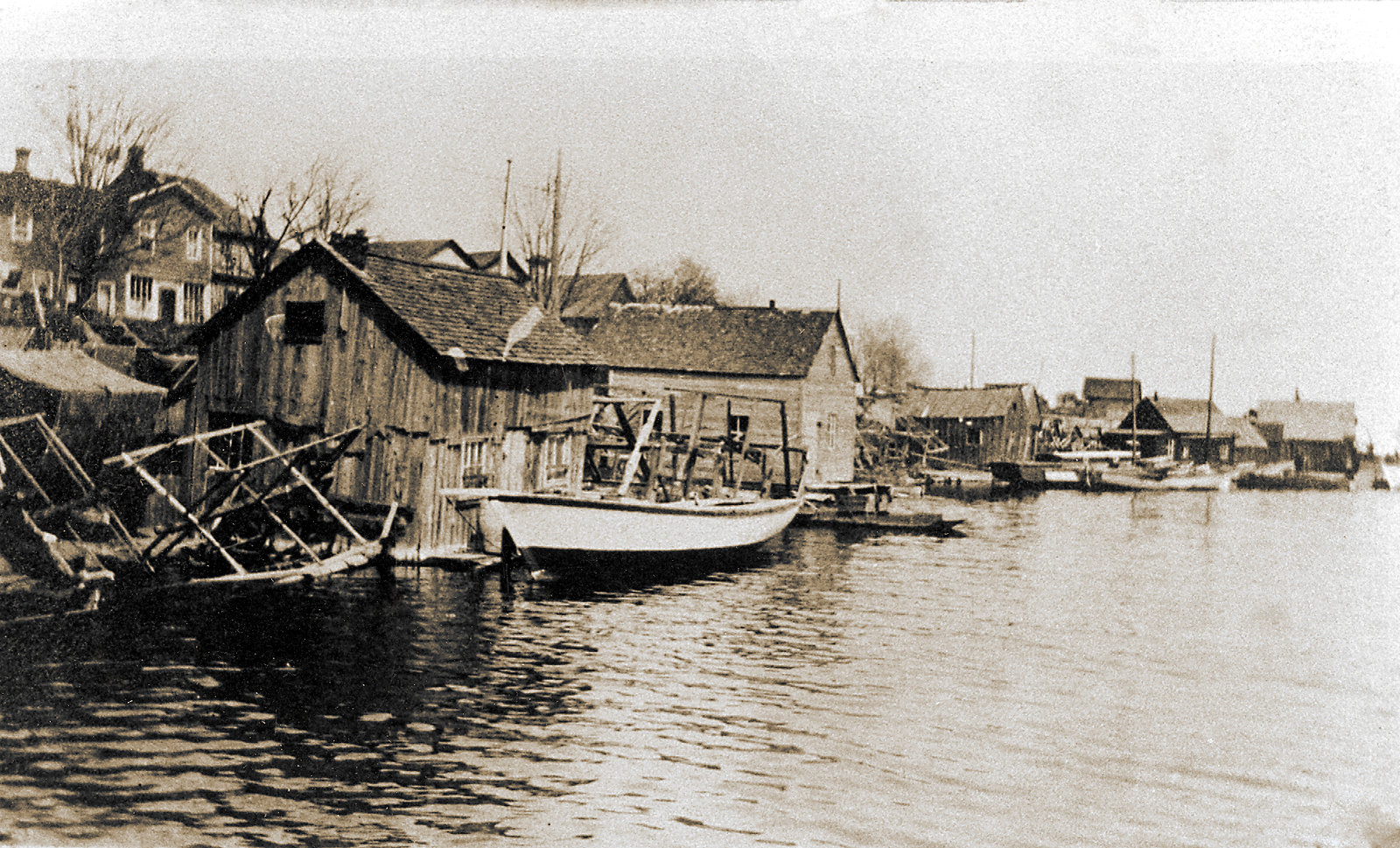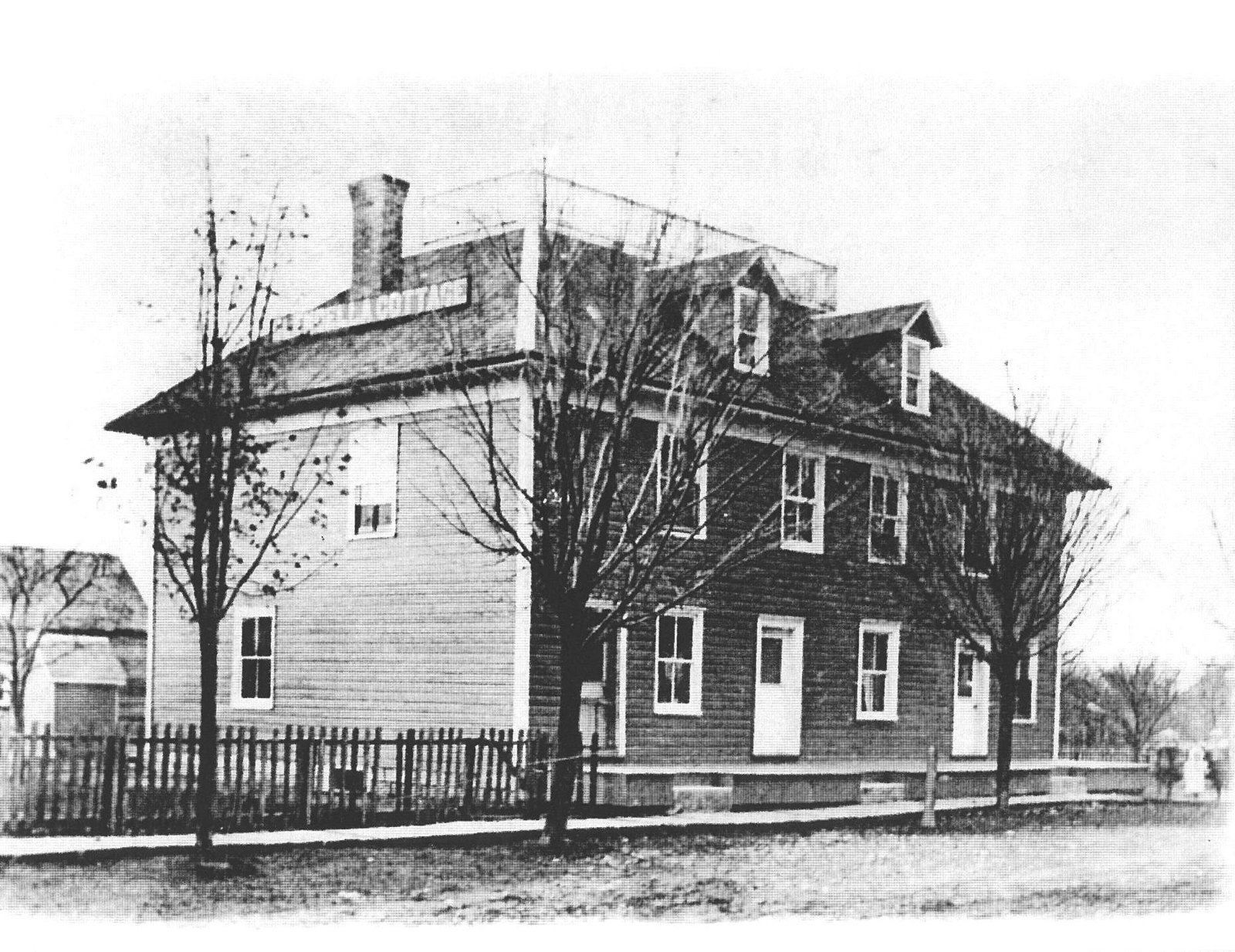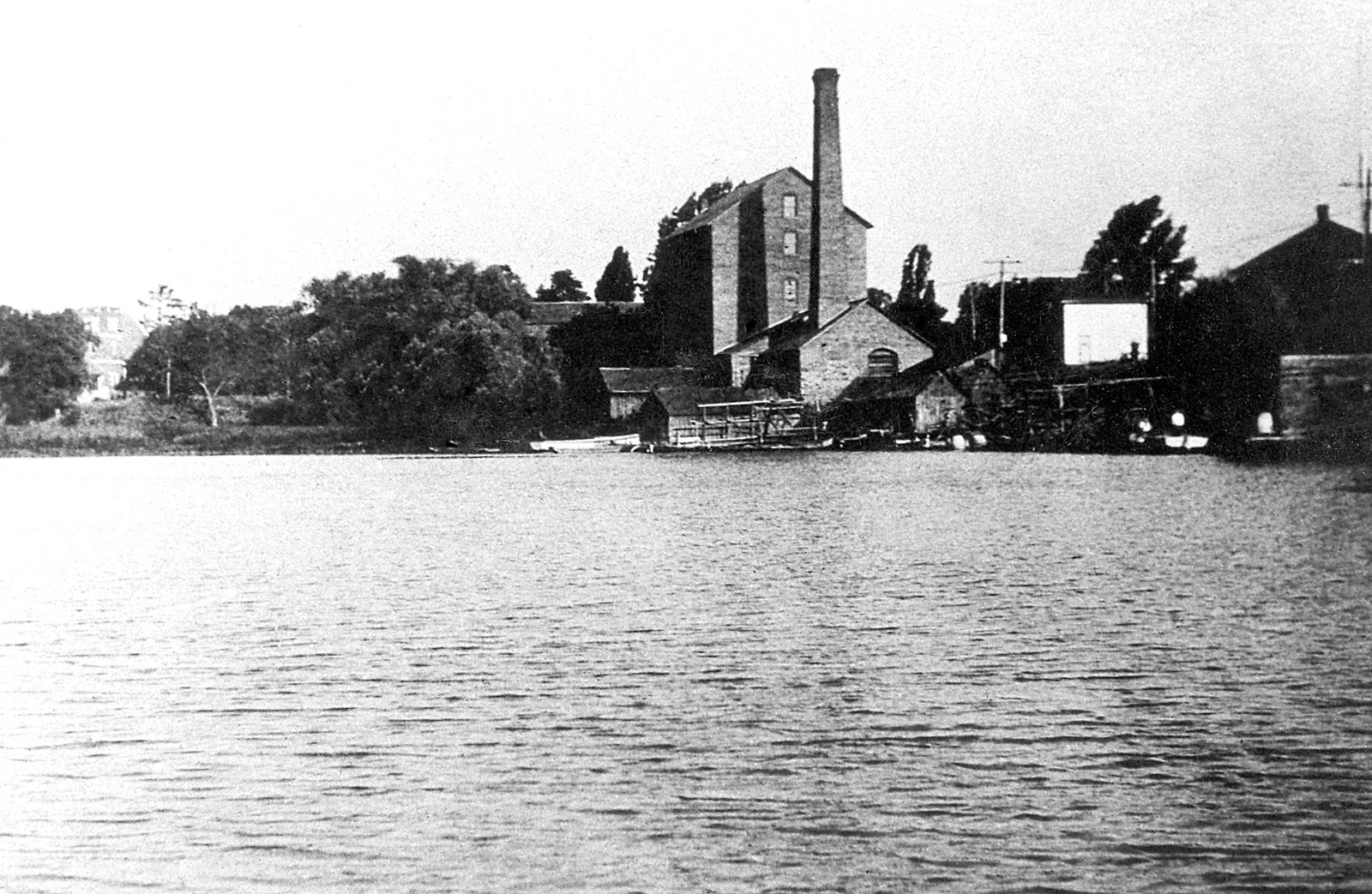
Bronte Harbour
Business on the Harbour

Bronte Harbour circa 1916 (Provided by Bronte Historical Society) Details
Around this time, with a peak population of 550, the village of Bronte began to transform into a busy town. The completion of the harbour, along with the fact that Bronte was on multiple transportation routes, allowed two hotels to flourish in the town starting in the 1850s. One of these, the Thompson hotel, still stands today as Glendella Suites. Merchants began moving in, including Andrew Gage of Oakville's Gage and Hagaman dry goods store. The warehouses along the harbour, and also a store in town, belonged to Gage and Hagaman. Because of their business ties in America and Europe, their presence opened Bronte up to much more traffic at the harbour. Boats would frequently stop at Bronte carrying shipments of mostly grains, lumber, and vegetables. Multiple large mills were also in operation around the time the harbour was completed, and one of Bronte’s biggest businesses was shipbuilding with ships being built from local materials.
Unfortunately, just as the harbour was completed, activity in Bronte dropped off as the price of what collapsed in 1858. The population dropped, many merchants left town and their warehouses disappeared from the waterfront. To replace the grain trade, a few different trades popped up, such as fishing, stonehooking, and small fruit farming. These small fruits could be taken by boat to markets in Hamilton and Toronto. Bronte was never able to survive as a grain port again, and many families turned instead to fishing.The impact of the new fishing industry could be seen in fishing shanties that began to pop up in the harbour along the water’s edge, and in the beginning of the fishermen’s regattas, which were held each year on Chirstmas or New Year’s day.Gas-powered boats began appearing in the early 1900s. Fishermen from Bronte began sailing to Main Duck Island on the east side of Lake Ontario for the summer, where they built a strip of houses that would come to be known as “Bronte of the East.” Fishing on Main Duck Island stopped after WWII when fishermen started catching more sludge than fish in their nets.

Glendella Cottage (Thompson's Inn) (Provided by Bronte Historical Society) Details

Bronte Steam Mill (Provided by Bronte Historical Society) Details
